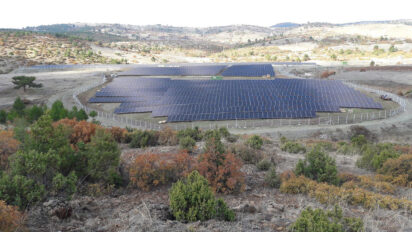
In this part of our series Co-benefits Stories, Ceren Kutlu discusses how renewables can increase Turkey’s resilience towards future crisis. For this series, we have asked energy professionals that have participated in our trainings for their thoughts and experiences on co-benefits of renewable energy in their country.
“In the summer of 2021, Turkey faced the most severe forest fires in its history. The fire started in five points and spread to more than 250 points in 53 cities. Although there are many speculations about how it started, experts point out two leading causes: Climate change and old electricity lines which were exposed to overload in forest regions. Moreover, the coal-fired power plant inside the fire region increased the level of danger. These fires lead to the death of thousands of creatures, the destruction of dozens of shelters, and released fifteen million CO2 eq. emissions which equal Turkey’s emission reduction potential for a whole year. This incident is just an outlook on how climate change and its effects will increase year by year due to the rise in temperatures.
Policy makers should adopt mitigation and adaptation policies including immediate implementation plans. Regarding mitigation policies, investments in distributed energy generation for residential and commercial users should be compulsory to prevent overload by increasing energy supply. Small-scale solutions such as solar energy applications might be a solution for peak hours. Moreover, these can be applied in a quick, timely and environmentally friendly manner.
Moreover, decentralised energy policies should be encouraged by investments in capacity building to train qualified energy employees. In the past few years, it has been shown that the rising demand for small-scale renewable energy created many new jobs over a short period of time. However, the fast transition caused inefficient and poor-quality applications. Hence, I believe that policy makers should prioritise decentralised energy solutions to make the transition safer, faster and greener. However, while doing this, they have to consider qualified employment opportunities. Moreover, there should be fiscal policies incentivising residents to strengthen the current energy infrastructure.”

Based on insights of the COBENEFITS research group, the Renewables Academy (RENAC) currently conducts trainings in Turkey, Kenya, South Africa and Mexico. Participants learn about co-benefits of renewable energy in climate change mitigation, tools to quantify and communicate social and economic opportunities and policies and instruments to mobilise them.